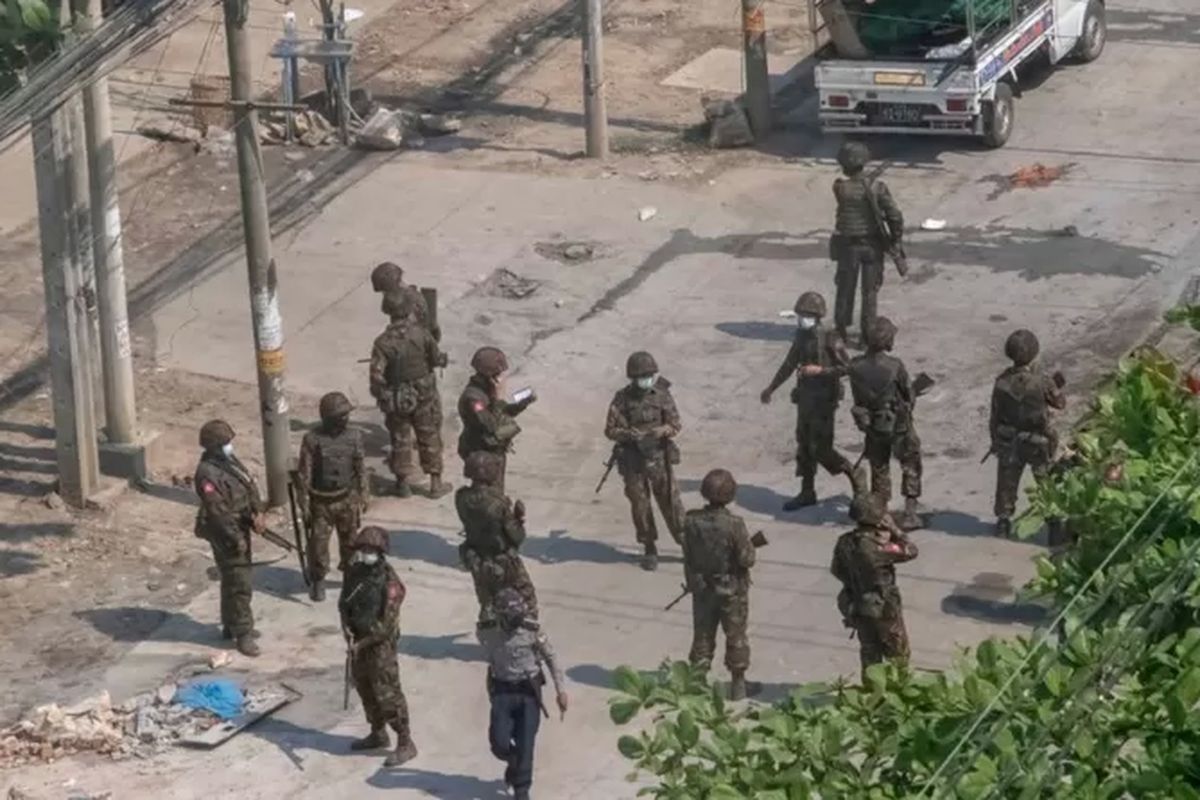
Indonesian President Joko Widodo has repeatedly called for an end to bloodshed, leading the most vocal criticism of Myanmar’s junta within a regional bloc more prone to tepid statements on the internal affairs of member states.
Reputation on the line
Experts say the rebellion against Myanmar’s junta is fast lurching toward an outright civil war, which will have ramifications for all of Southeast Asia, possibly marring ASEAN’s credibility and threatening a dangerous spillover of instability.
“As its biggest and most consequential member, Indonesia's chairmanship is ASEAN's best hope to rein in Myanmar's bloody spiral from military coup to civil war,” said Thitinan Pongsudhirak, professor of International Relations at Chulalongkorn University.
“But it will be a daunting task because the Myanmar junta has been intransigent, so far taking ASEAN for a ride.”
Political fragmentation within the ASEAN bloc makes it difficult to achieve a firm position on Myanmar.

Thailand’s military-backed rulers—who last seized power from an elected government in their country in 2014—share a long-established relationship with Myanmar’s junta and its leader, Min Aung Hlaing, complicating any moves to pressure the army into ending the violence.
Even as efforts to isolate Myanmar diplomatically gathered pace late last year, Thailand hosted Myanmar’s foreign minister.
Also read: UNICEF: 11 Schoolchildren Killed in Myanmar Air Strike
“It was very disconcerting and kind of undermined the effort to put more pressure on Myanmar,” said Phil Robertson, deputy director of Human Rights Watch’s Asia Division. “It sent the wrong signal.”
Some analysts say Thailand’s position is nuanced, subject to instability and refugee flows along its border with Myanmar.
“Thailand does not want to see the collapse of Myanmar,” said Bangkok-based Kavi Chongkittavorn, an ASEAN expert. “Thailand would be the most affected by the ongoing quagmire. Bangkok has been using quiet diplomacy—not silent diplomacy—to engage the junta.”
Yet without a strong line by ASEAN, the violence will continue weakening the regional bloc, says Thitinan, suggesting “actionable threats of suspension” are among the tools Indonesia must consider using as ASEAN chair.
“If the Myanmar crisis does not improve, ASEAN will be further marginalized in the eyes of the international community,” he said.
Source: VOA
Simak breaking news dan berita pilihan kami langsung di ponselmu. Pilih saluran andalanmu akses berita Kompas.com WhatsApp Channel : https://www.whatsapp.com/channel/0029VaFPbedBPzjZrk13HO3D. Pastikan kamu sudah install aplikasi WhatsApp ya.































